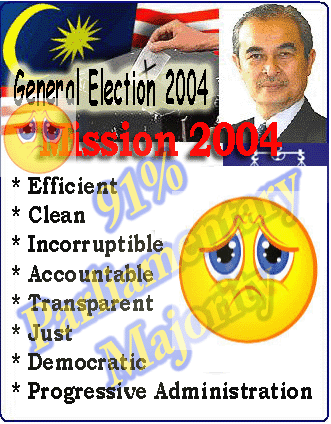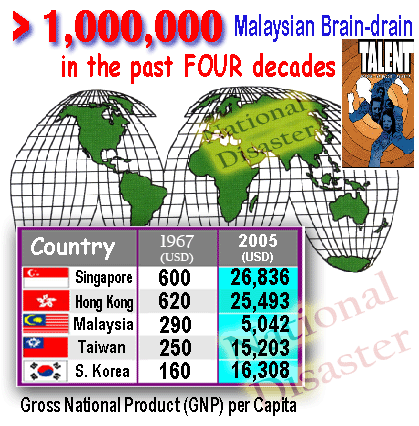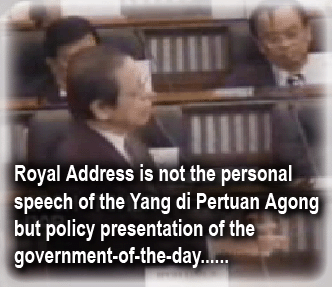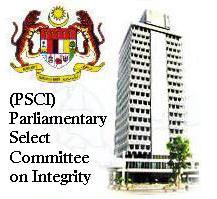Some 40 months after Abdullah’s pledge to “walk the talk” to eradicate corruption, Malaysia is faced with the worst crisis of national integrity in the 40-year history of the Anti-Corruption Agency and 50-year history of the nation, with a spate of corruption scandals in the past two weeks, viz:
- Serious corruption allegations against the Anti-Corruption Agency director-general Datuk Zulkipli Mat Noor;
- Serious corruption allegations against the Deputy Internal Security Minister, Datuk Mohd Johari Baharun; in the Emergency Ordinance (EO) “freedom for sale” scandal; and
- Serious allegation by the Chief Justice, Tun Ahmad Fairuz Sheikh Abdul Halim of judges who accept bribes.
Internationally, Malaysia’s anti-corruption perception had been on a downward spiral ever since Abdullah’s takeover as Prime Minister.
Only last week, there was more bad news for Malaysia and Abdullah’s 40-month premiership.
The Hong Kong-based Political and Economic Risk Consultancy (PERC) 2007 corruption table in Asia, which is released every year based on a poll of expatriates working in Asia on their perceptions on corruption, is bad and grim news for all Malaysians concerned about national integrity, good governance and international competitiveness.
In a grading system with zero as the best possible score and 10 as the worst, Malaysia was ranked sixth in Asia with a score of 6.25 by PERC Corruption Asia 2007.
In 1996, Malaysia was ranked No. 4 with a score of 5, a reflection of the relentless deterioration of the corruption problem in the country over the years.
As the PERC annual corruption ranking is one of the polls used by Transparency International (TI) for its annual Corruption Perception Index (CPI), this is very bad news as the PERC 2007 Corruption Table is a forewarning that Malaysia is heading south towards No. 50 placing in TI CPI 2007 on the occasion of Malaysia’s 50th Merdeka anniversary this year. Continue reading “Royal Commission of Inquiry on Corruption and ACA”








